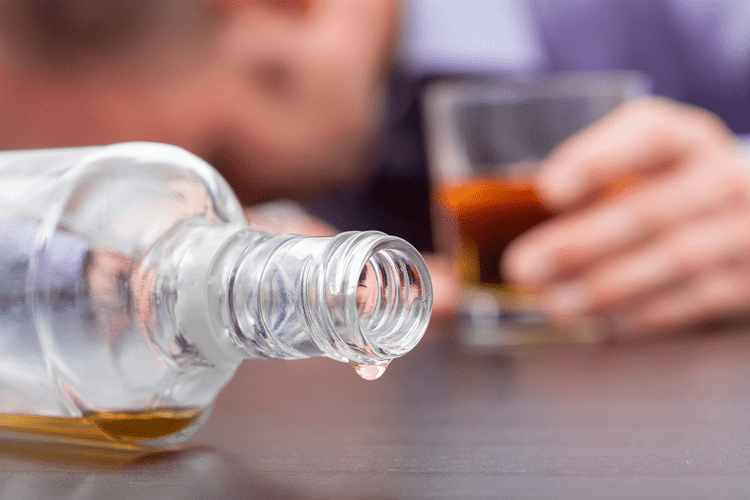adult sex toys
lovense sex toy
air jordan balck
nfl tshirt
nfl san francisco 49ers
custom football jersey
men’s nike air max 90
wig stores
dallas cowboys jersey
nike air max 95
adidas outlet
custom basketball jersey
custom baseball uniforms
custom football uniforms
custom hockey jerseys
male sex toys
custom football jerseys
cheap nfl jerseys
Content
More commonly, people experience symptoms of alcohol intolerance due to its various ingredients. People often mistake alcohol allergies for alcohol intolerance. Alcohol intolerance is a rare condition in which your body cannot process alcohol correctly, leading to a build-up of a chemical called acetaldehyde. High levels of acetaldehyde are what cause the unpleasant symptoms of alcohol intolerance. Certain types of alcohol trigger intolerance in certain individuals. Drinking alcohol that contains ingredients you’re intolerant to is obviously a bad idea – and will result in flushing or other symptoms. In some cases, sudden onset alcohol intolerance is triggered by the presence of a new disease.

Though signs of alcohol intolerance intolerance is untreatable, there may be ways to reduce the symptoms that will inevitably occur when using alcohol. This will typically involve using medications to treat the symptoms that are particular to each individual. Alcohol intolerance symptoms are unpleasant but rarely actually dangerous. However, alcohol allergy symptoms can range from mildly unpleasant to life-threatening. Mild symptoms include rash, but more dangerous symptoms include swelling in the face and throat, which can affect the ability to breathe. If you suspect that you or someone you know is having a serious allergic reaction, immediately call 911.
How can you treat alcohol allergy?
The defect of the ALDH2 gene causes your body to produce less active ALDH2, which prevents it from digesting alcohol properly. Gin has low levels of histamine and is free from sulfites – both are chemicals that may set off allergies and cause alcohol intolerance in some people. They are added by manufacturers to keep the beverages fresh for a longer period of time. While most people process sulfites without any issue, they may not sit right with others and can cause symptoms such as coughing and difficulty breathing. Feeling nauseous and vomiting, especially right after a few drinks, are signs of alcohol intolerance.
How do you get rid of alcohol intolerance?
The only way to avoid alcohol intolerance symptoms or an allergic reaction is to avoid alcohol or the particular beverage or ingredients that cause the problem. For a minor reaction, over-the-counter or prescription antihistamines might help reduce symptoms, such as itching or hives.
You’ll get a prick on your skin with a tiny bit of the substance you may be allergic to. Certain medications can create alcohol intolerance by inhibiting the action of alcohol dehydrogenase. The most common medication that creates this side effect is metronidazole , a commonly used antibiotic. Another medication that causes alcohol intolerance is disulfiram . The sole purpose of this medication is actually to create alcohol intolerance, and it is used to deter alcohol use in people struggling with alcohol addiction. Genetic alcohol intolerance is inherited from one’s parents, and it is caused by a mutation in the gene that the body uses to create alcohol dehydrogenase.
Risk Factors For Alcohol Intolerance
Physicians often diagnose alcohol intolerance based exclusively on the symptoms experienced and the fact that the symptoms develop immediately after drinking alcohol. Doctors also tend to rule out alcohol allergy before diagnosing alcohol intolerance. Genetic tests can also be done to evaluate if there are problems with the genes that make alcohol dehydrogenase.

If you develop symptoms after drinking alcohol, make an appointment with your doctor. Depending on your symptoms, they might refer you to an allergist for testing and treatment. An allergist is a special type of doctor that focuses on allergic conditions. The symptoms of histamine intolerance are similar to an allergic reaction. For example, potential symptoms include red and itchy skin, nasal congestion, shortness of breath, abdominal pain, and diarrhea. If you have a true alcohol allergy, even small amounts of alcohol can cause symptoms.
Alcohol intolerance symptoms
Sudden onset alcohol intolerance is when an alcohol intolerance that was not present from birth occurs abruptly later on in life. Most people with ALDH2 deficiency will notice some effects from the first time they take a drink, but there’s often no known reason as to why an alcohol intolerance develops. If people experience symptoms after drinking alcohol, they should speak with a doctor for further advice. The immune system usually produces antibodies to fight harmful substances in the body. However, in people with an alcohol allergy, the system mistakenly produces antibodies to attack alcohol following exposure to the substance, triggering various symptoms.
Alcohol allergies: Symptoms, treatments, and alcohol intolerance – Medical News Today
Alcohol allergies: Symptoms, treatments, and alcohol intolerance.
Posted: Wed, 27 Jan 2021 08:00:00 GMT [source]
Leave a Reply